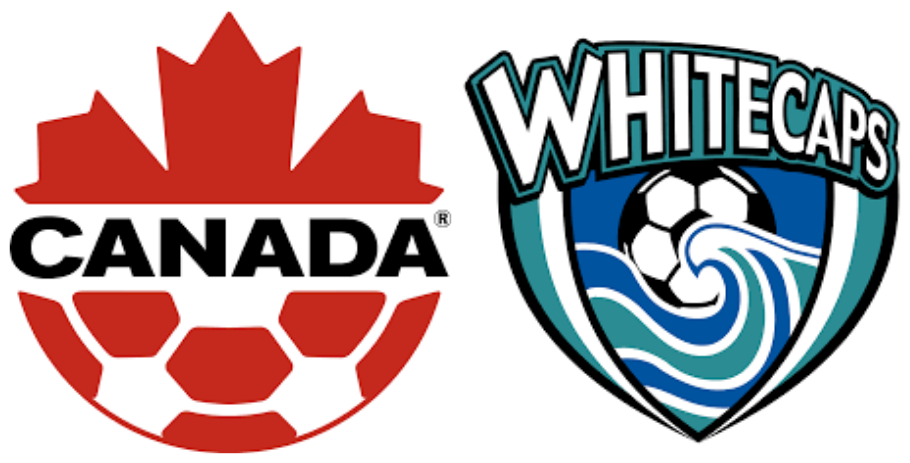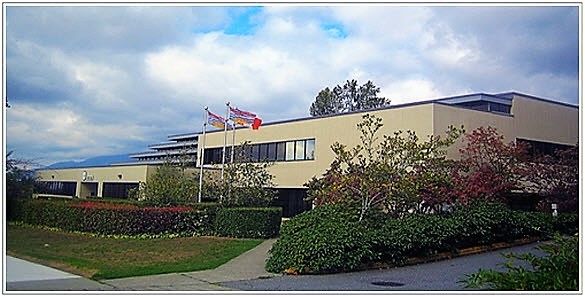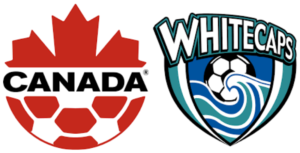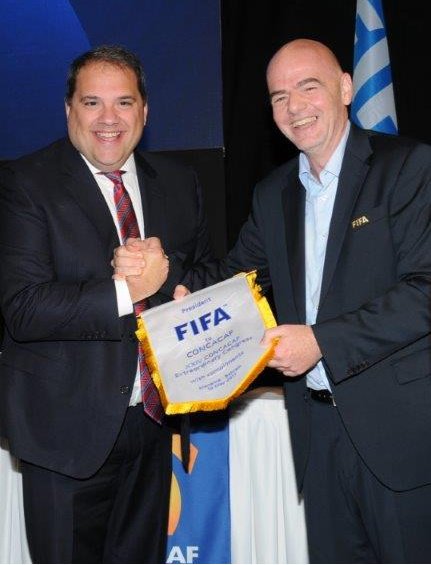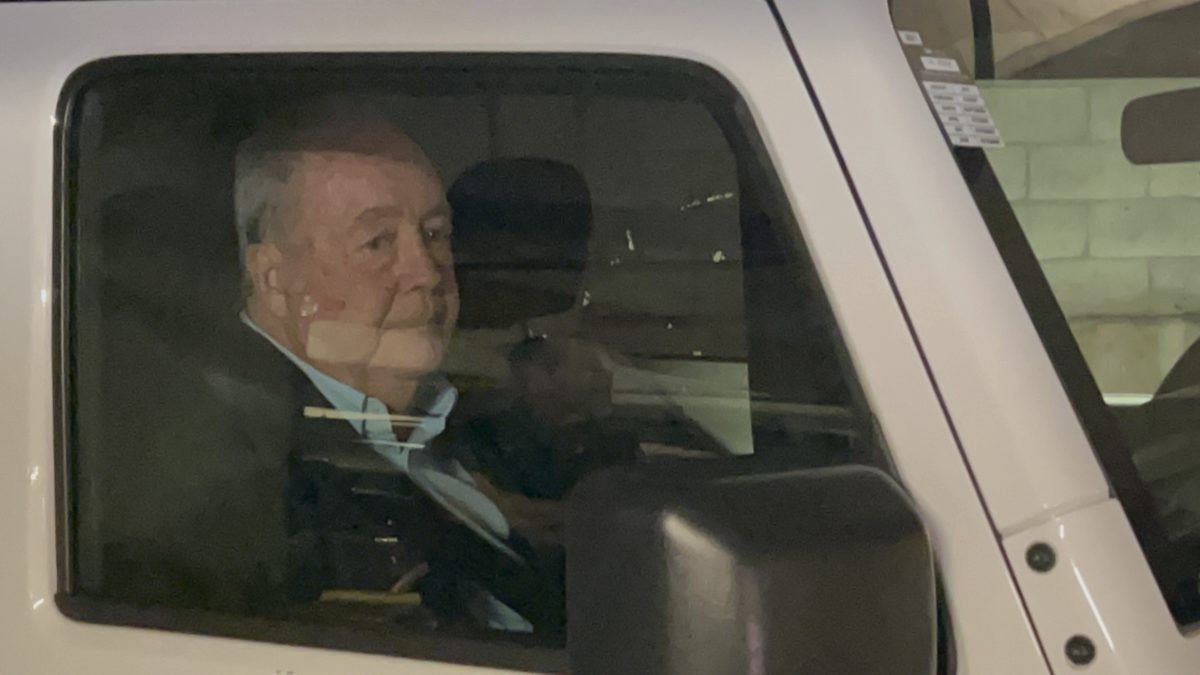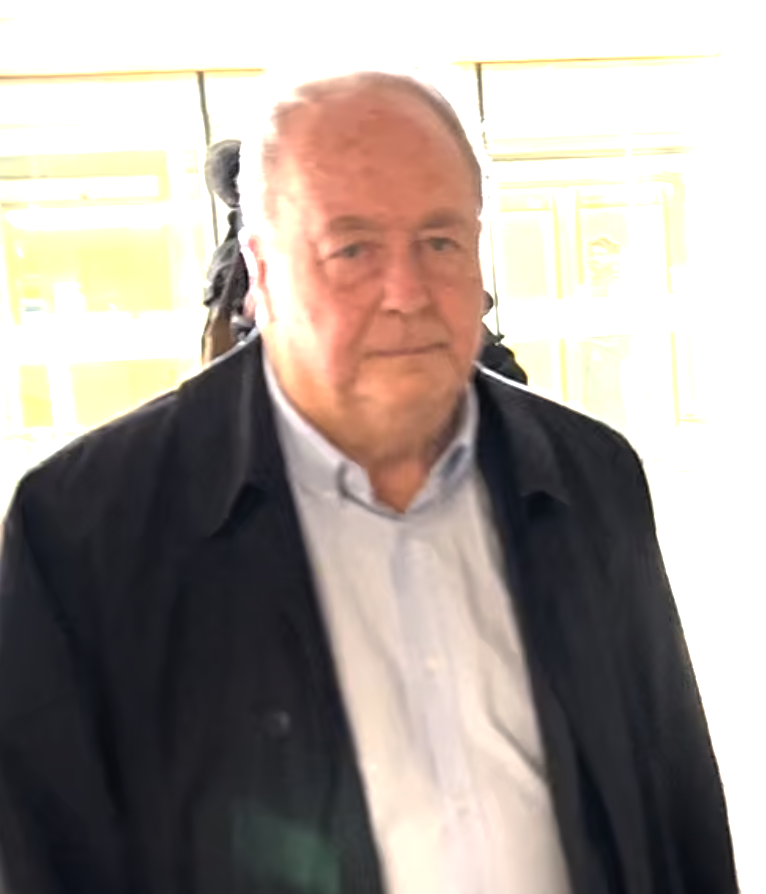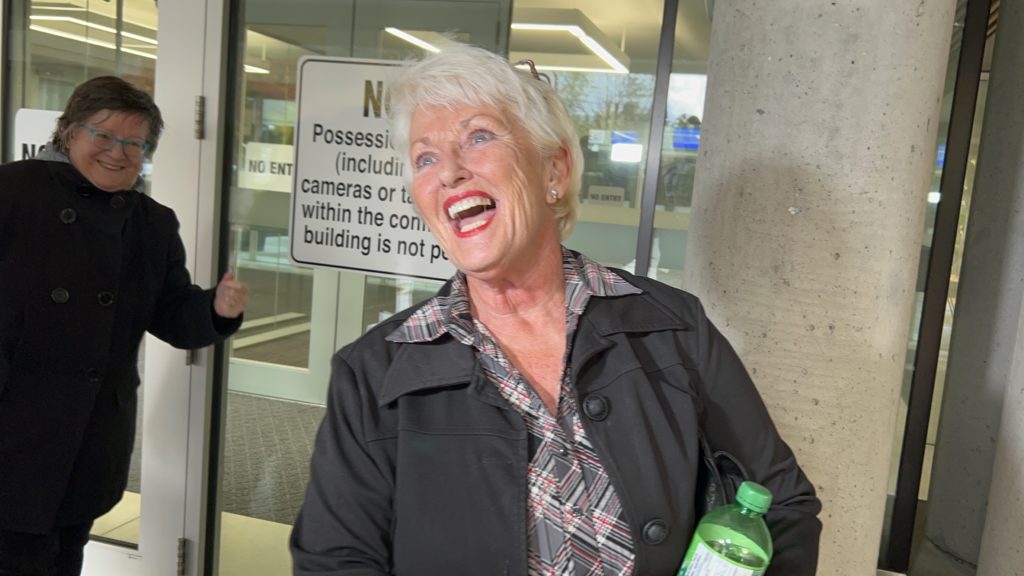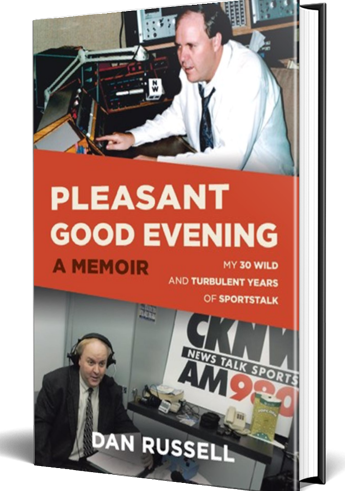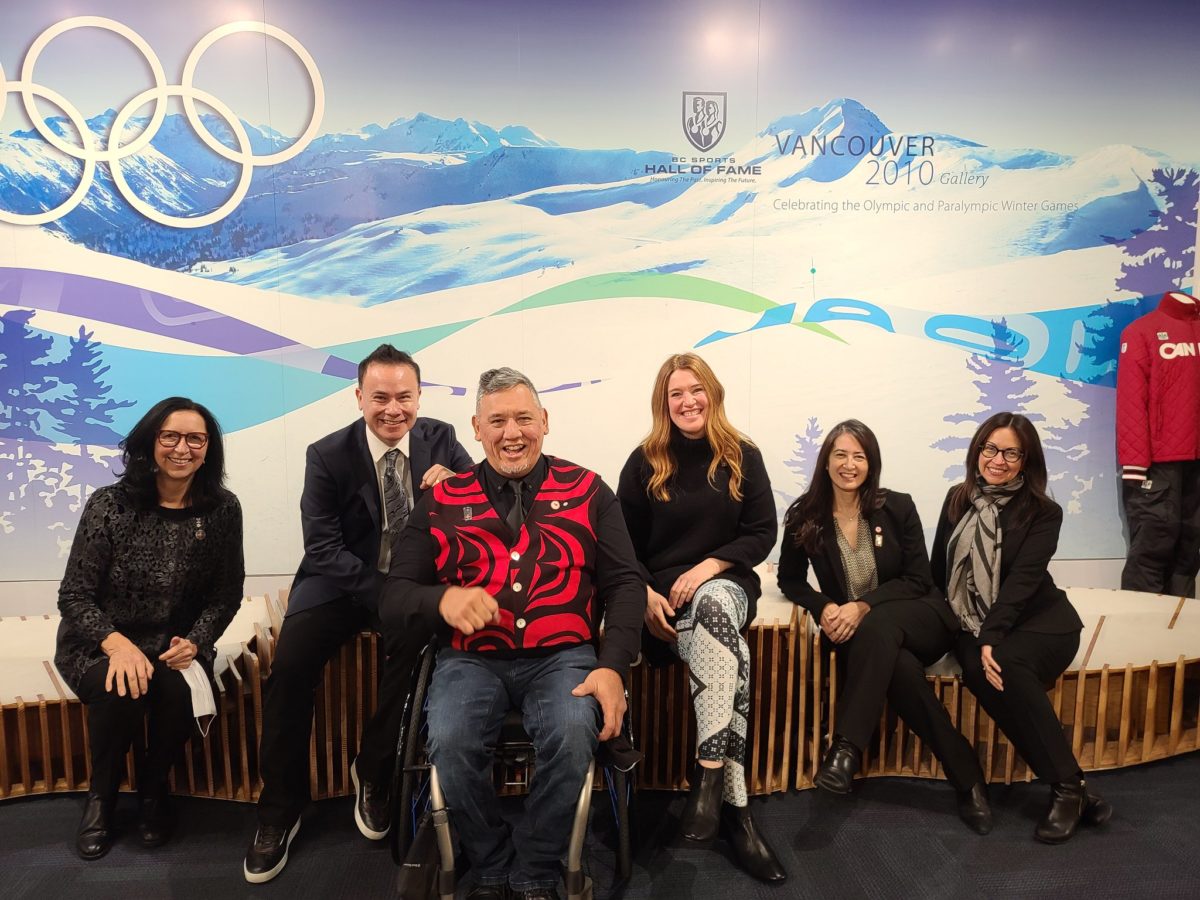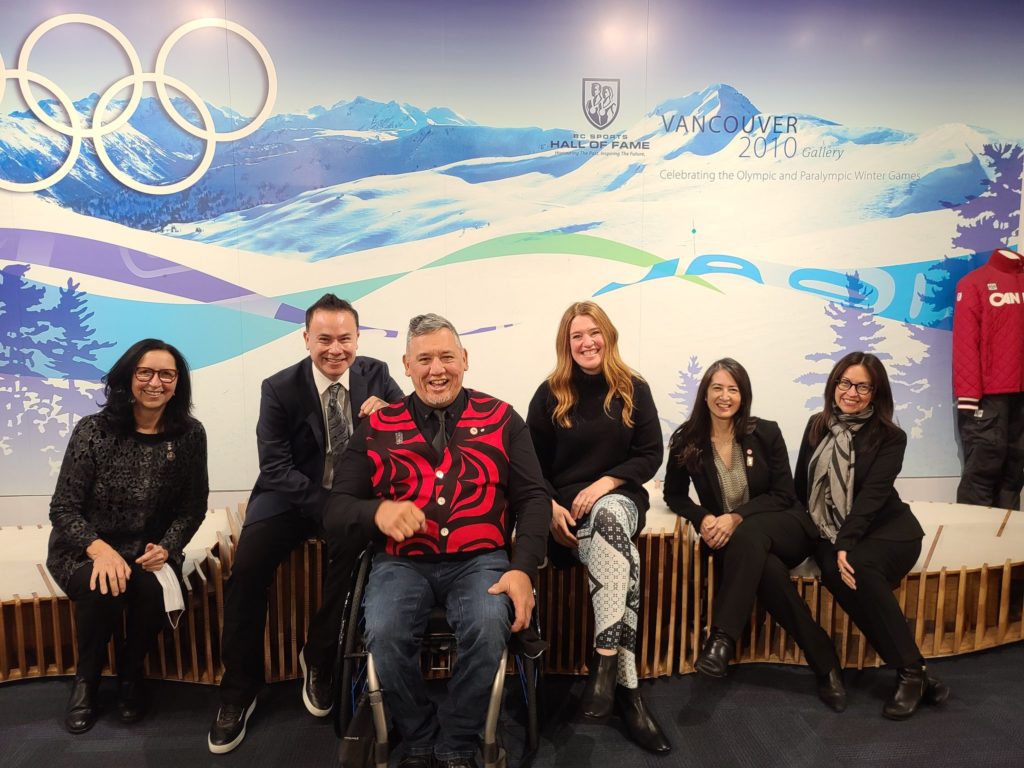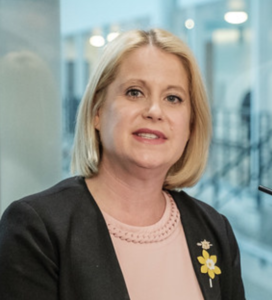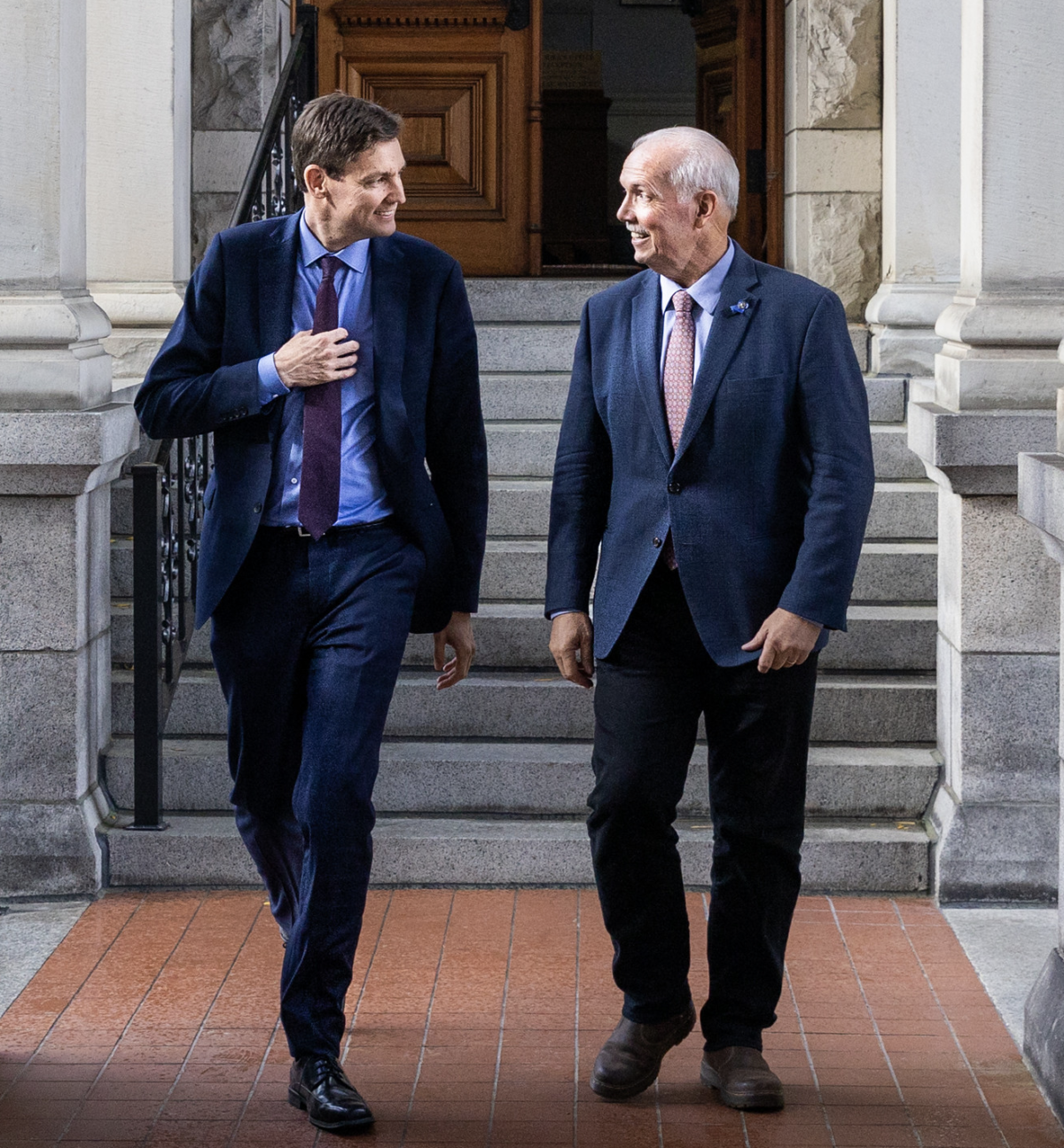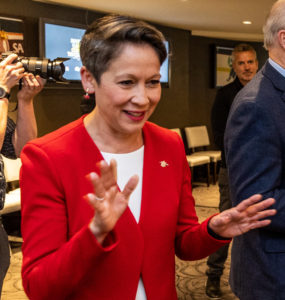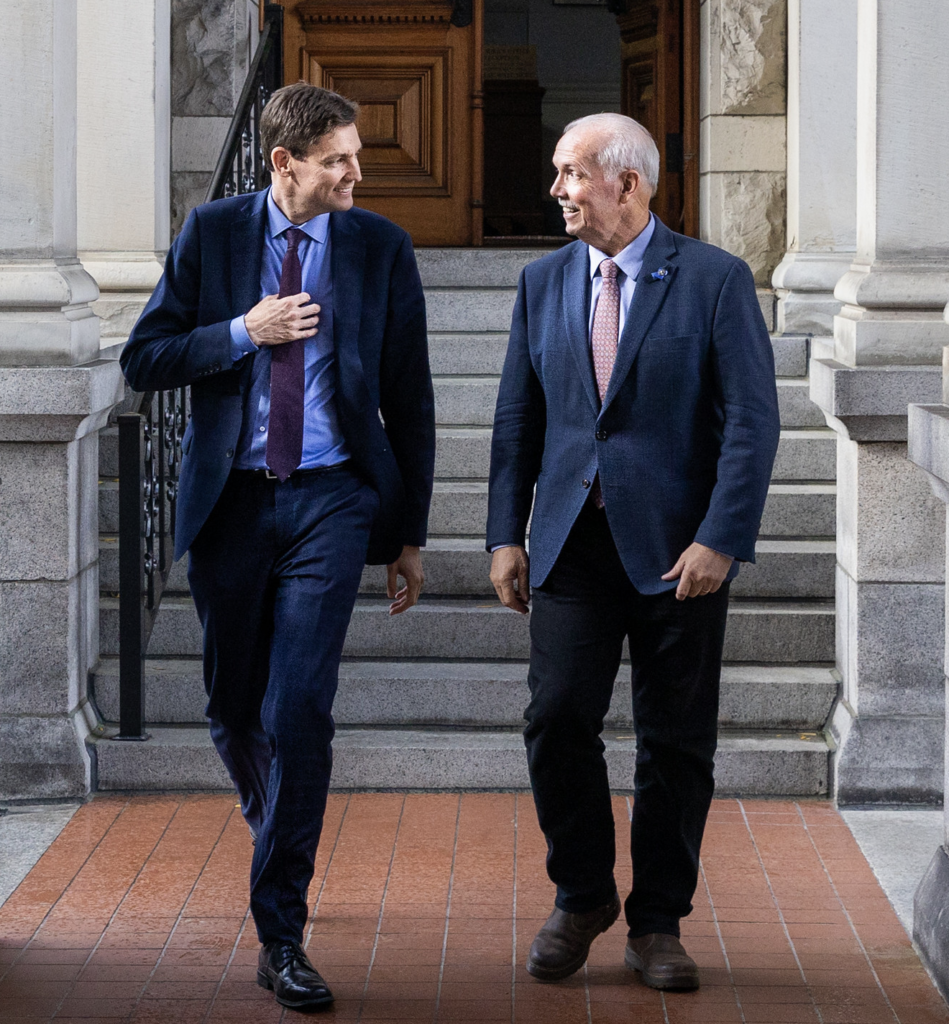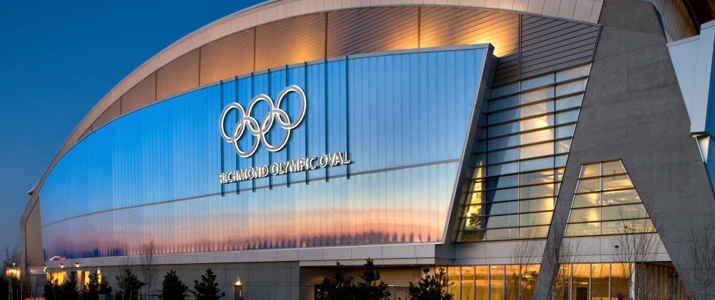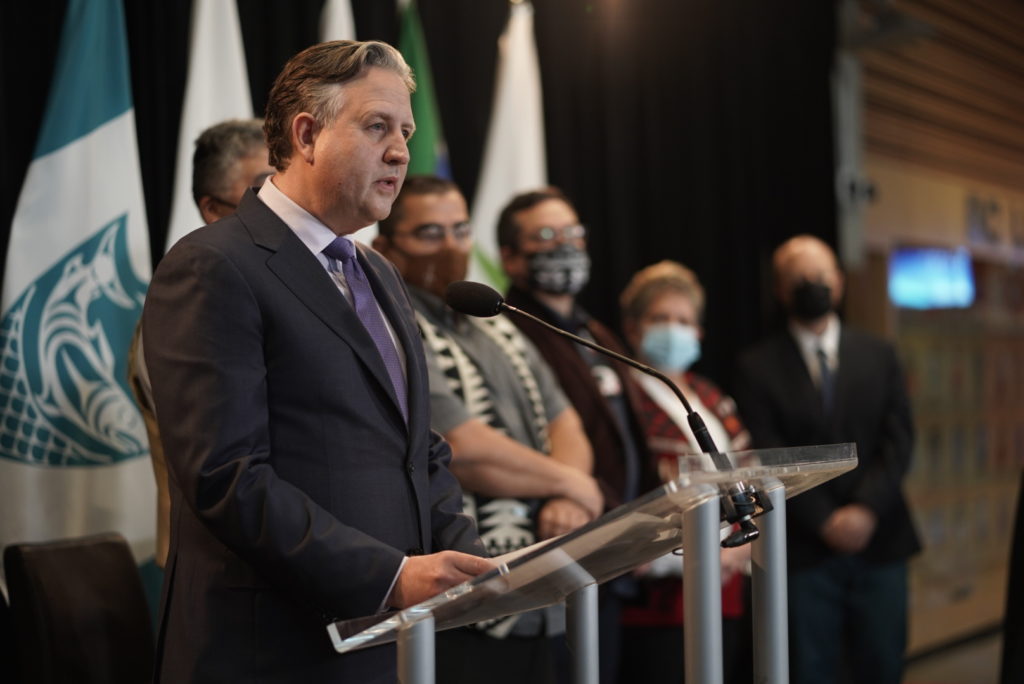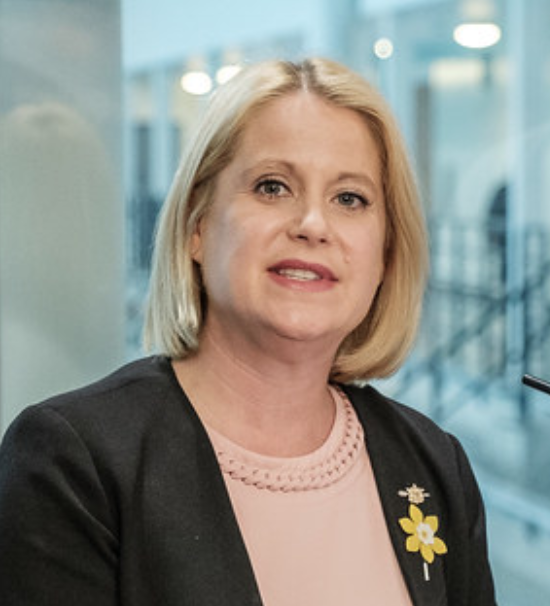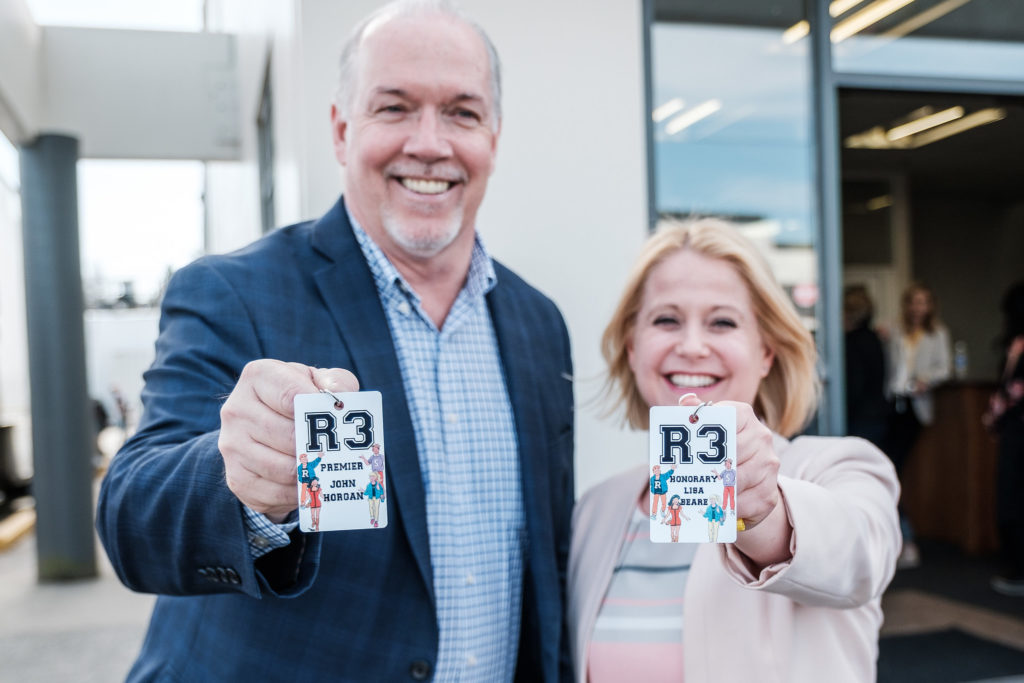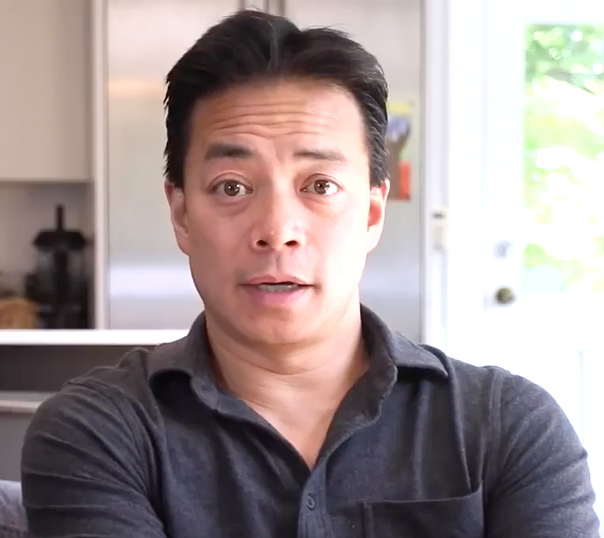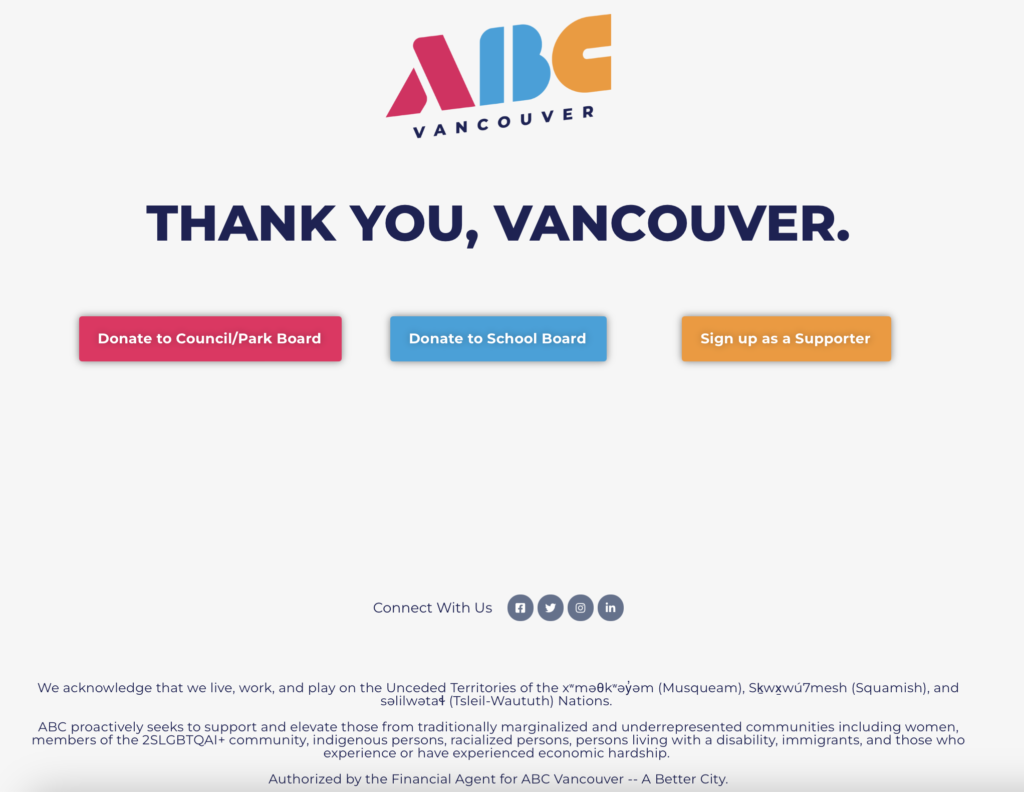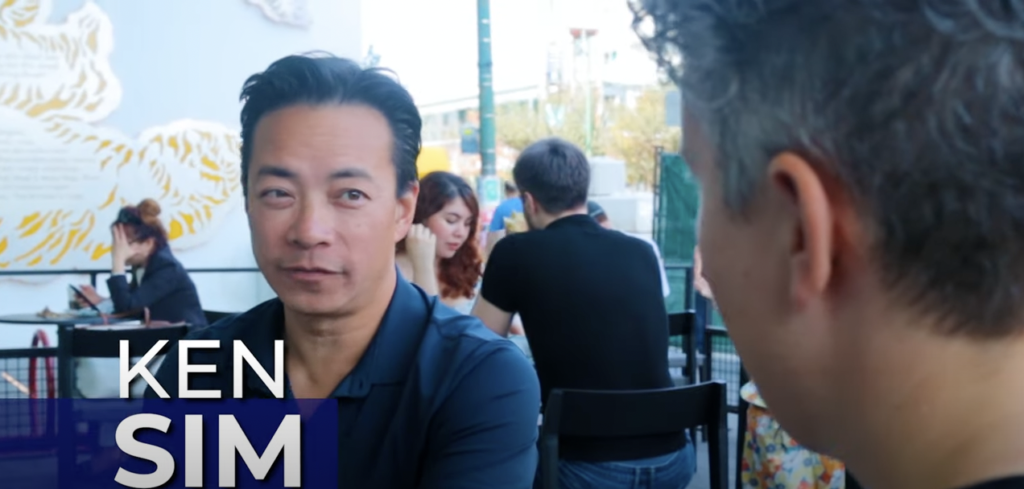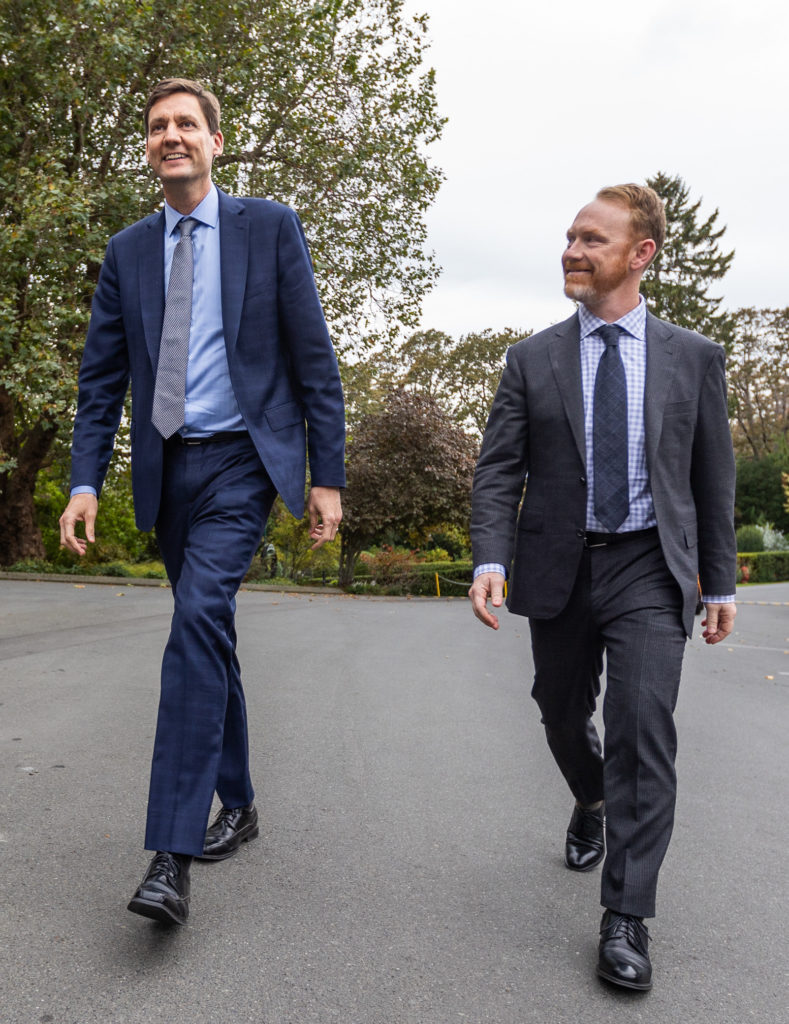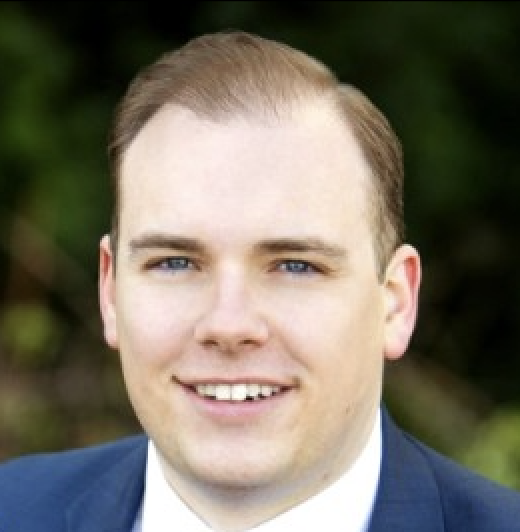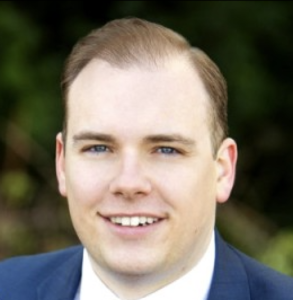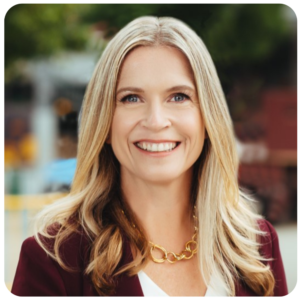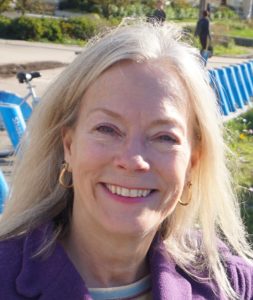Crown case closed, will McCallum testify?
Bob Mackin
Special Prosecutor Richard Fowler wrapped his case against outgoing Surrey Mayor Doug McCallum Nov. 1 in Surrey Provincial Court by playing a series of surveillance video clips showing McCallum at the Southpoint Save-On-Foods, Peace Arch Hospital and a Surrey RCMP interview room.

Doug McCallum on Sept. 4, 2021 (Provincial Court exhibit)
McCallum had originally alleged that a member of Keep the RCMP in Surrey drove over his foot on Sept. 4, 2021. Instead, he was charged with a single count of public mischief.
Court heard McCallum’s 9-1-1 call in which he accused Debi Johnstone of driving over his left foot and said that it was very numb. He was treated in hospital during a two-hour stay.
In the video recorded interview, McCallum described to an RCMP officer how another driver suddenly appeared beside him after he parked his car outside his usual grocery store.
“She pulled up in this convertible so tight and literally just about pinned me to the car, I was at the back of my car and stopped, just yelled at me, screamed and so forth,” McCallum said to the officer.
McCallum said she went “on and on with obscenities that I can’t even say here” before she sped away.
“Then she actually floored it, I thought she was going to peel rubber.”
McCallum told the officer more about their interaction and the moment that he claimed she injured him.
“She even came closer to me, like she turned right into me and then when she turned, she ran right over my foot, my leg, right at the top of my foot, went right over it here and took off,” he said.
McCallum said he was pretty sure it was Debi Johnstone, a member of Keep the RCMP in Surrey. “They harass my family. If you look there’s at least four or five investigations going on. It’s common for them to harass all of us.”
At one point, McCallum took his left foot out of his shoe and took off his sock as the officer bent down with a flashlight and took photos. McCallum consented verbally to provide his medical records from his hospital visit.
Video evidence showed that McCallum had arrived outside the Save-On-Foods at 9:08 a.m. Johnstone did not show up until closer to 10 a.m. After their argument, McCallum walked casually into the store and shopped for 35 minutes, with no apparent limp.
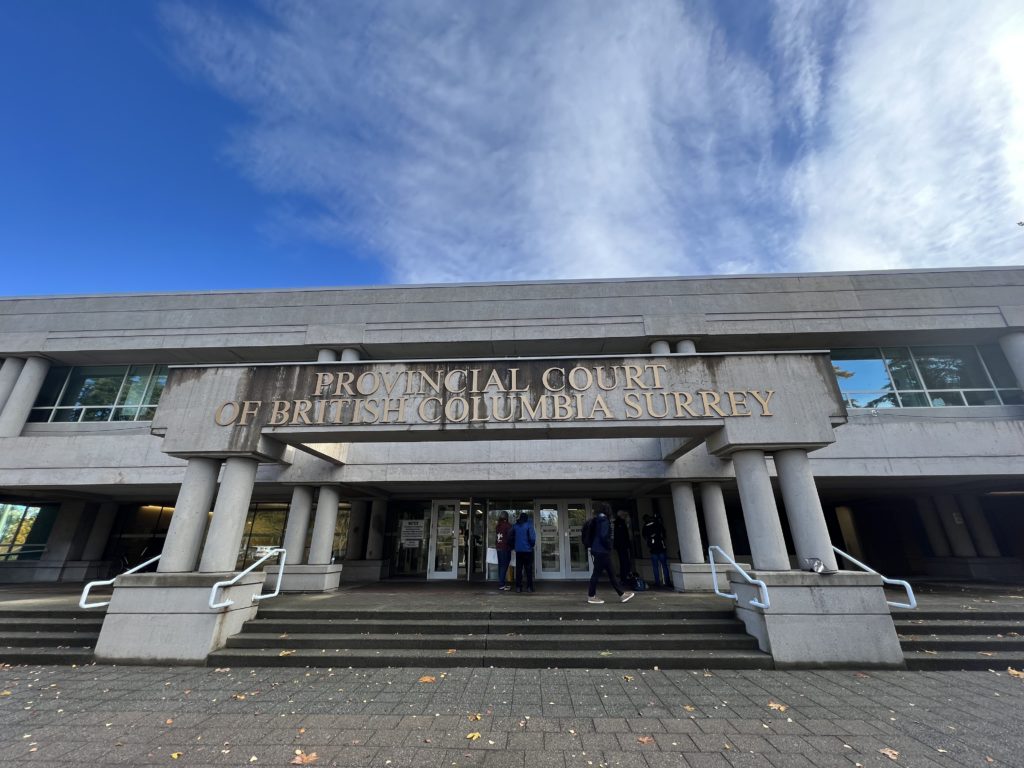
Surrey Provincial Court (Mackin)
Earlier Nov. 1, Sgt. Andre Johnny testified by video that he reviewed the surveillance video obtained from the store and the statements given to police by both McCallum and Johnstone.
Johnny said he also reviewed photos of Johnstone’s vehicle taken by McCallum, McCallum’s medical records and a photo of McCallum’s left foot.
“My conclusion was that we could not determine whether or not his foot was run over by Debra Johnstone,” Johnny told court.
However, Johnny said that video evidence disproved McCallum’s claim that he had been pinned against Johnstone’s vehicle.
“The video review indicates that McCallum walked away from his vehicle and approached the crosswalk at Save-On-Foods, at which point Ms. Johnstone believed to have called out to Mr. McCallum, and then he turned around and approached Ms. Johnstone’s vehicle,” Johnny said.
“He stated that the vehicle at that point was pressed up against him, however video review indicates that Ms. Johnstone did not drive her vehicle into McCallum. Video footage indicates that it was Mr. McCallum who approached the vehicle and therefore had control over how close the vehicle was in proximity to his body.”
Under cross-examination, Johnny admitted to McCallum’s lawyer Richard Peck that the investigation team had considered, but rejected, various techniques. Those included surveillance of McCallum to test his claims of an injury and limp, and an undercover operation to gain access to his phone. Johnny said the ideas were discussed at a brainstorming meeting and did not gain management approval.
The investigation was later transferred from the Surrey RCMP detachment to major crimes in E Division, to avoid any appearance of conflict of interest. McCallum ran on a 2018 platform to replace the RCMP with a municipal force.
McCallum, who lost the mayoralty to Brenda Locke in the Oct. 15 civic election, pleaded not guilty when the trial began Oct. 31.
Support theBreaker.news for as low as $2 a month on Patreon. Find out how. Click here.
Bob Mackin Special Prosecutor Richard Fowler wrapped his






